| Ma Sicong performing for Chinese soldiers at the front during the Korean War |
When I interviewed composer Raymond Yiu, back in 2021 [see my interview] we touched on his new Violin Concerto which is inspired by the Chinese violinist and composer, Ma Sicong (1912-1987) whose music was banned for 20 years after he escaped to America and wrote about his experiences in China and so was branded a traitor.
Raymond Yiu's Violin Concerto will be premiered on 20 March 2024 at the Barbican Centre with violinist Esther Yoo and the BBC Symphony Orchestra, conducted by Sir Andrew Davis [further details]. The concerto is co-commissioned by BBCSO for Radio 3, Hong Kong Philharmonic and Seattle Symphony.
Ma Sicong was one of the first generation of Chinese composers who went to study in Paris in the 1920s. He has been called ‘The King of Violinists’ in China. At the beginning of the Cultural Revolution in 1966, Ma was being targeted and tortured by the Red Guards due to his position as the head of the Central Conservatory of Music in Beijing. He eventually escaped to the United States with his family, where he remained until his death. His reputation faltered in his homeland after his exile, and he never achieved the same creative reputation in his adopted home. One of Ma’s best-known compositions, Nostalgia – the second movement of his Inner Mongolia Suite (1937) for violin and piano – has been considered by many Chinese to be one of the most poignant meditations on the sorrow of exile [see on YouTube]
With the current situation in Hong Kong (where Raymond Yiu comes from) being one of deteriorating democracy and free speech, this makes his concerto seem even more prescient.
Raymond has written something about the concerto and its themes:
The main themes of the work are exile and homesickness - hence I borrow the story of Ma Sicong as the backbone for the work. With the going-ons in Hong Kong in the last few years that lead to the mass exodus of Hongkongers (including my family) this became a very personal work. I decided to reverse the traditional structure, and put the most substantial movement at the end. it has four movements, the last movement is about the same length of the first three put together.
- Larghetto, volubile: a fragmentary, mysterious kind of intrada which contains hints of materials from the next three movements. It is like a kind of premonition.
- Vivo con brio - Andantino grazioso: a playful scherzo which plays homage to shidaiqu, a genre of music which has a profound impact on me. It is the kind of music popular during Ma Sicong’s youth too.
- Andante desolato: a soliloquy (i.e. unaccompanied cadenza), an elaborated transcription of an erhu [a Chinese two-stringed bowed musical instrument] solo titled Huan lo ts'ao yuan (Happiness upon the grassy plain) made in Hong Kong in around 1974. When I heard the recording, I thought of Hong Kong and felt an enormous sense of nostalgia and loss. It also got me imagining the sense of loneliness when Ma Sicong was being locked up and tortured before he escaped to the States.
- Mesto- etc.: structurally the most complex of the movements. The quotation of Ma Sicong’s Nostalgia is most obvious in this movement. In fact the main motif of the whole work, the five-note sequence E-F-sharp-D-B-A’ is based on the opening of Nostalgia - is clearly heard at the opening of this movement. After the cadenza after the climax, the melody of third movement comes back as a counterpoint to Ma Sicong’s Nostalgia before the music dies away.
Esther Yoo comments:
"It’s very exciting to work with Ray on such a wonderful new composition. Getting to know and understand his Concerto has been a tremendously rewarding experience."
Wednesday 20 March 2024 - Michael Tippett: The Midsummer Marriage - Ritual Dances, Raymond Yiu: Violin Concerto, Beethoven: Symphony No. 7 - Esther Yoo, BBC Symphony Orchestra, Sir Andrew Davis - Barbican Centre

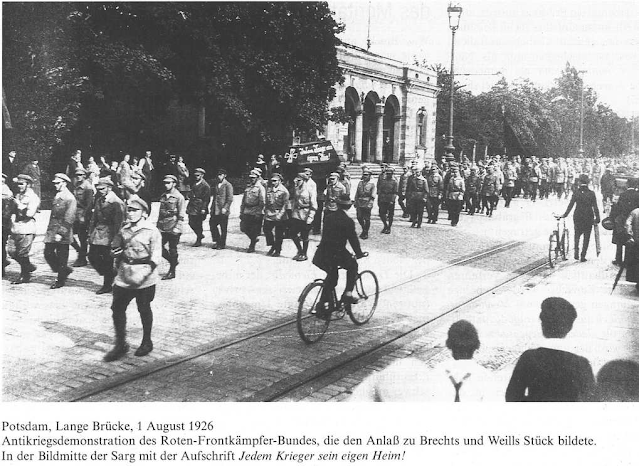

.png)
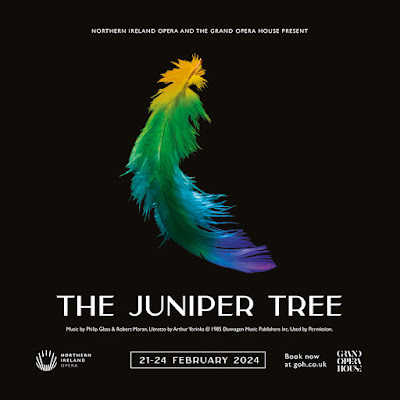



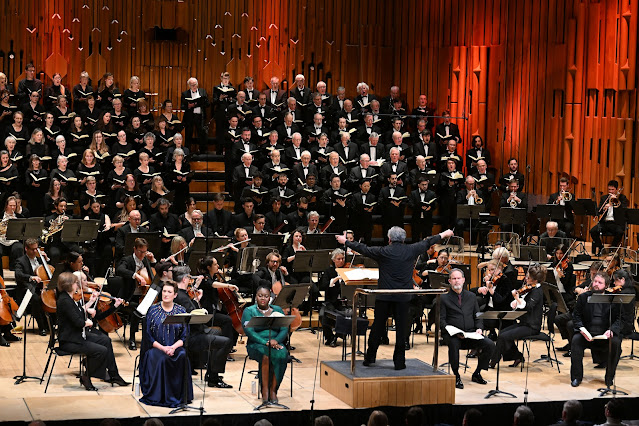
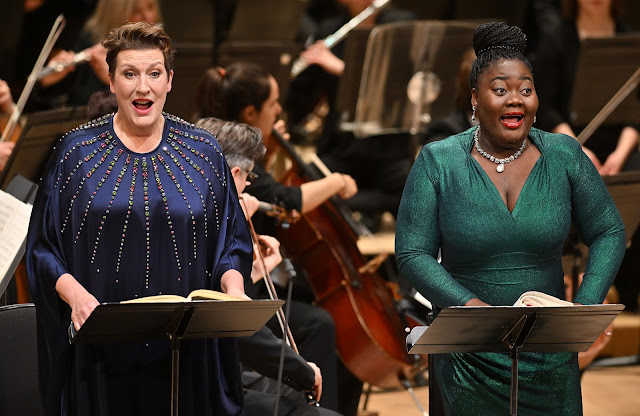
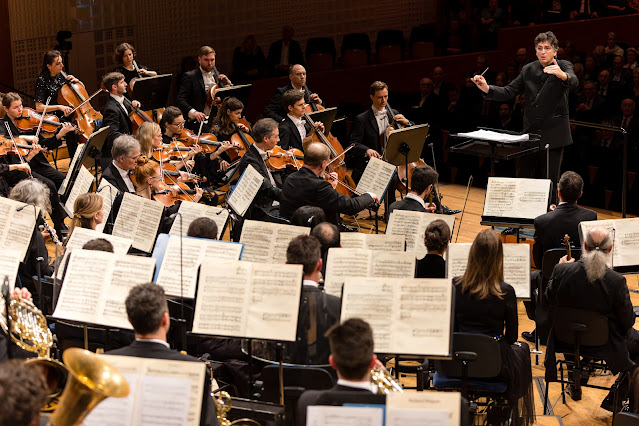








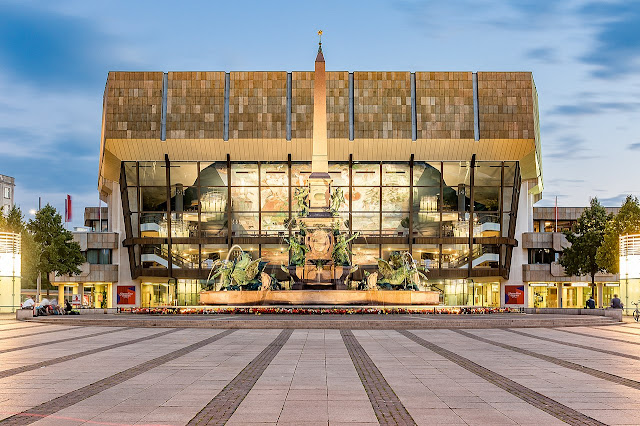
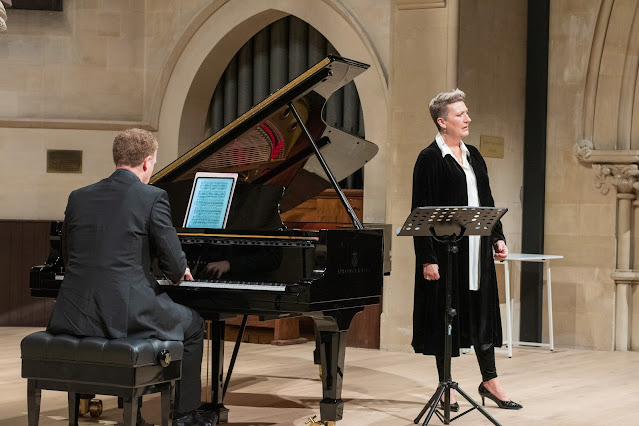
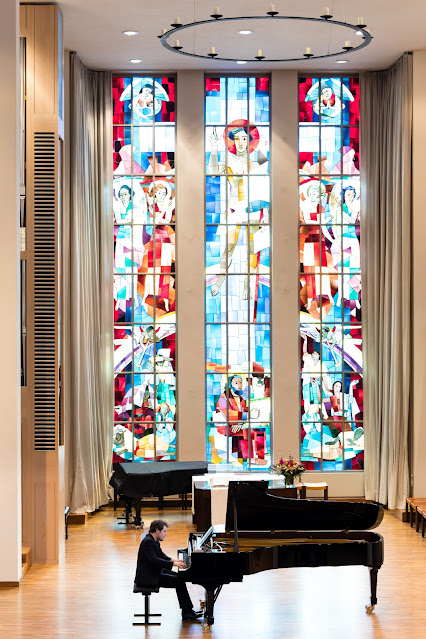



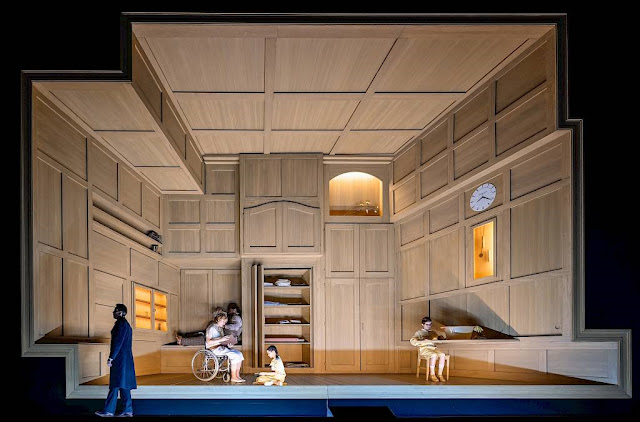
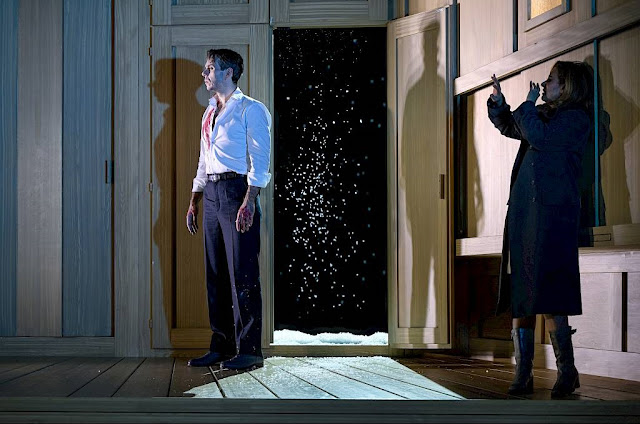

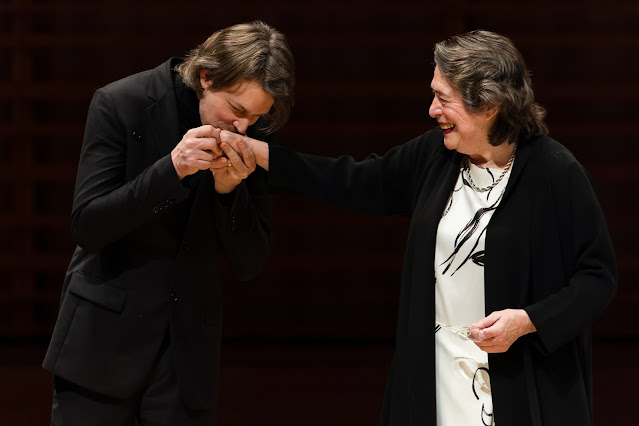


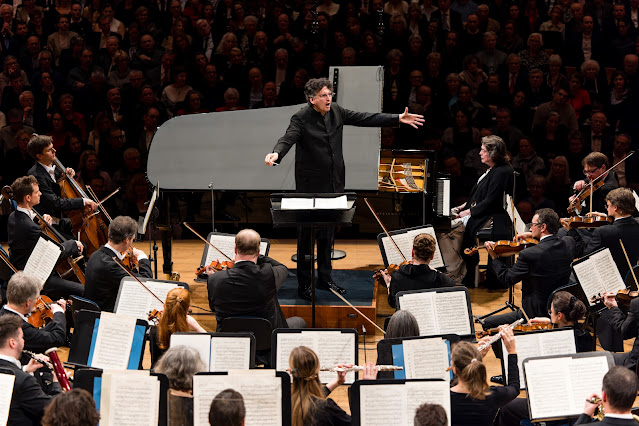


.png)







